Spanish torrijas - french toast brioche in air fryer!
vote now
There are flavors that stay with us all our lives, and Spanish torrijas are, without a doubt, one of them. This version of French toast brioche in air fryer recovers that sweet and golden memory of childhood, with a little twist that makes everything simpler. Because the traditional does not have to be at odds with the modern, especially when it allows us to enjoy the taste of always without complications. And if we can use an air fryer to lighten our workload, then we do it. Halfway between the French toast and Spanish torrijas, this recipe has the best of both worlds.
Ingredients
3
Estimated cost: 3.15Euros€ (1.05€/serving)
Materials
- Oil spray (or brush and olive oil)
Preparation
Preparation15 min
Waiting time2 hours
Cook time14 min
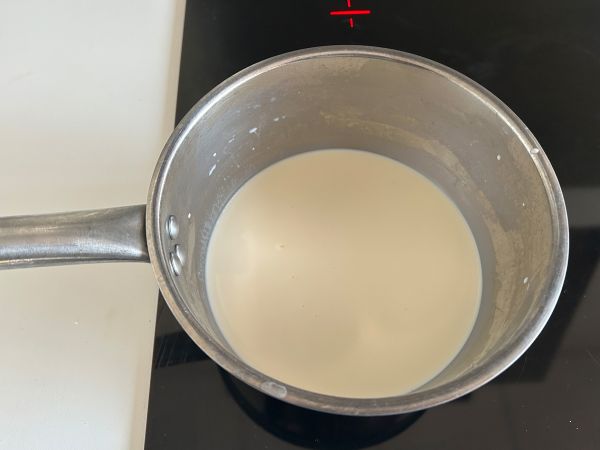 Pour the milk, cream, vanilla extract and sugar into a saucepan. Bring to a boil. When it comes to a boil, remove from the heat.
Pour the milk, cream, vanilla extract and sugar into a saucepan. Bring to a boil. When it comes to a boil, remove from the heat.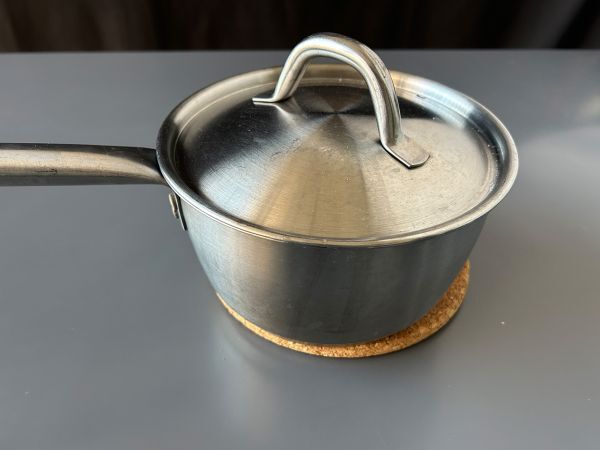 Place the lid on the saucepan and let stand for 10 minutes for the mixture to infuse and temper.
Place the lid on the saucepan and let stand for 10 minutes for the mixture to infuse and temper.
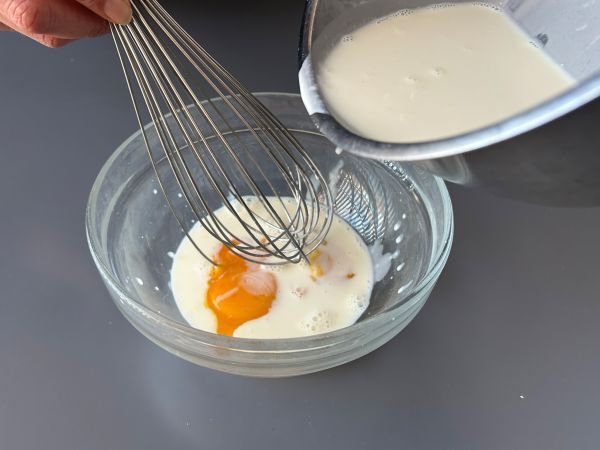 In a large bowl, add the two egg yolks. Stirring constantly with a hand whisk, gradually add the warm infused milk.
In a large bowl, add the two egg yolks. Stirring constantly with a hand whisk, gradually add the warm infused milk.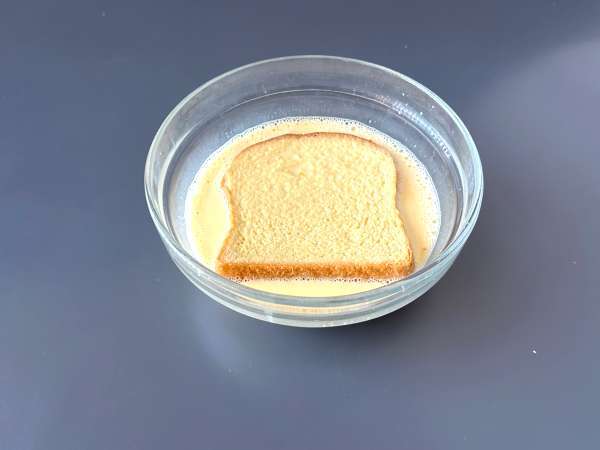 When the mixture is ready, soak the slices of brioche bread one by one. The time required will depend on whether the brioche is fresh or somewhat drier. Just make sure that the center of the bread is also well moistened.
When the mixture is ready, soak the slices of brioche bread one by one. The time required will depend on whether the brioche is fresh or somewhat drier. Just make sure that the center of the bread is also well moistened.
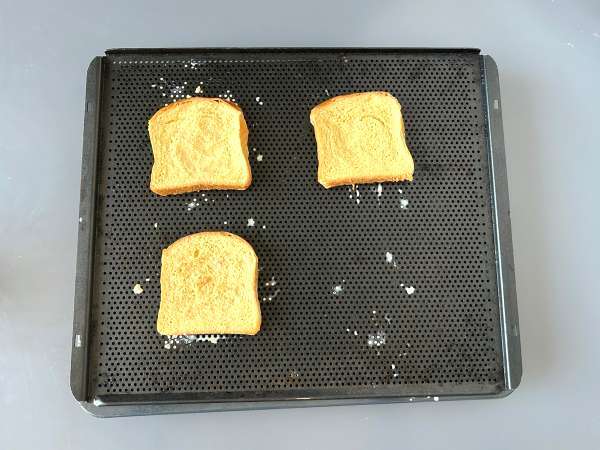 With the help of a skimmer, remove each slice and place on a rack. Let them rest for about 5 minutes on each side so that they lose the excess liquid.
With the help of a skimmer, remove each slice and place on a rack. Let them rest for about 5 minutes on each side so that they lose the excess liquid.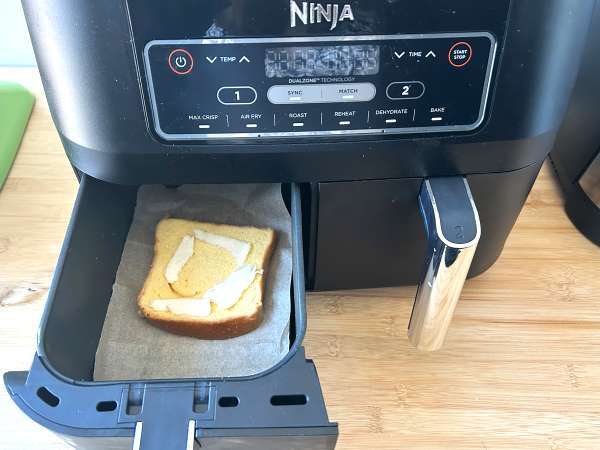 Line the base of the fryer basket with baking paper. Place the Spanish torrijas without overlapping. Spray a little oil on both sides (if you prefer, you can replace the oil with a few thin slices of butter). Sprinkle sugar on both sides.
Line the base of the fryer basket with baking paper. Place the Spanish torrijas without overlapping. Spray a little oil on both sides (if you prefer, you can replace the oil with a few thin slices of butter). Sprinkle sugar on both sides.
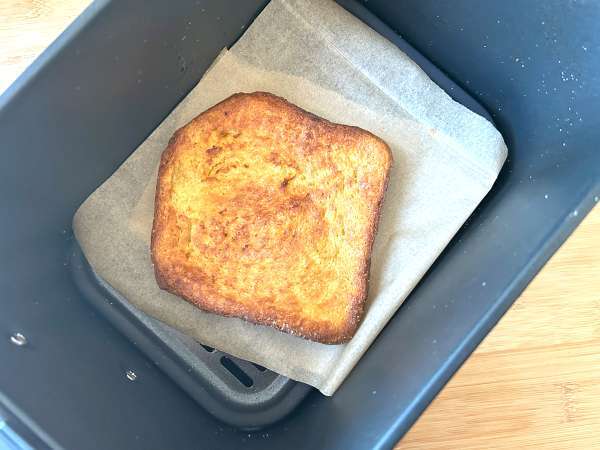 Cook at 350°F/180 ºC for 7 minutes. After this time, turn them over and cook for another 7 minutes.
Cook at 350°F/180 ºC for 7 minutes. After this time, turn them over and cook for another 7 minutes.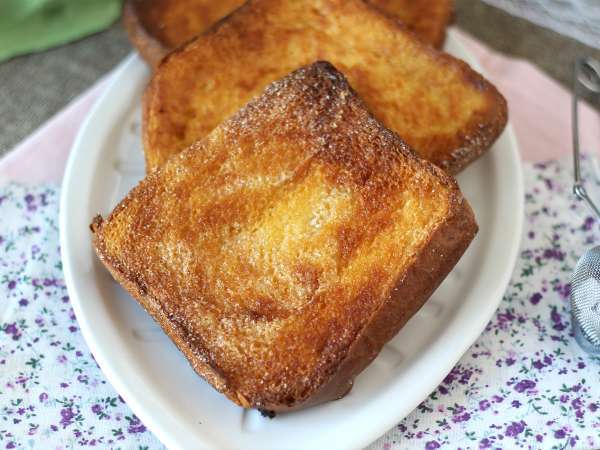 And that's it! Before serving, you can sprinkle a little icing sugar for decoration or, if you are looking for a more traditional flavor, opt for a mixture of sugar and cinnamon.
And that's it! Before serving, you can sprinkle a little icing sugar for decoration or, if you are looking for a more traditional flavor, opt for a mixture of sugar and cinnamon.
FAQ ❓
How to preserve brioche French toast?
Brioche French toast should be stored in an airtight container, preferably in the refrigerator, once they have cooled completely. This avoids excess humidity and they keep well for 3 or 4 days. They can also be frozen, preferably before cooking. To reheat them, just put them directly into the air fryer or oven, without defrosting them beforehand.
Can Spanish torrijas be eaten hot or cold?
Spanish torrijas can be eaten either hot or cold, depending on personal preference. Cold torrijas are soft and juicy, ideal for hot days or as a dessert. Hot they gain in aroma and texture, especially if they have just been prepared or slightly reheated.
What is the best bread for making torrijas?
The best bread for making torrijas is the one with a dense crumb and good absorption capacity. Brioche bread is an excellent choice because of its soft texture, slightly sweet flavor and consistency, which allows it to soak well without falling apart. You can make your own homemade brioche bread by following our recipe.
Can I use Plant-based milk to make torrijas?
Whole milk is the most common, as it adds flavor and creaminess, but you can also use plant-based milks (such as oat or almond) for a dairy-free version. The important thing is to infuse it well with flavorings such as cinnamon, vanilla or citrus peel.
Can torrijas be made without sugar?
Yes, you can prepare sugar-free torrijas using natural sweeteners such as crushed dates, stevia or erythritol. You can also control the sweetness with toppings, such as fresh fruit or a touch of honey.
What is the difference between traditional torrijas and air fryer torrijas?
The main difference is in the cooking: traditional Spanish torrijas are fried in abundant oil, while the air-fried ones are cooked with hardly any fat. The result is lighter, but with the same characteristic flavor if the base is well prepared.
What is the difference between a traditional Spanish torrija and the French toast?
Although traditional Spanish torrija and French toast share the idea of using hard bread soaked in milk and egg, they have key differences. The Spanish torrija is usually soaked in milk infused with cinnamon, sugar and citrus, coated in egg and fried in plenty of oil, and finished with honey or sugar. French toast, also called pain perdu, on the other hand, is prepared with a simple mixture of milk and egg, and is cooked on the griddle with butter, without being fried. Its texture is lighter and its flavor is more milky. Both are desserts that allow us to take advantage of stale bread but with their own identity.
Nutrition
for 1 serving / for 100 g
Calories: 538Kcal
- Carbo: 89.8g
- Total fat: 11.7g
- Saturated fat: 5.2g
- Proteins: 16.1g
- Fibers: 3.3g
- Sugar: 32.7g
- ProPoints: 14
- SmartPoints: 20
Nutritional information for 1 serving (237g)
Cookware
air fryer
burner
Attributes
Keep refrigerated
Zero waste
You may like

Cinnamon toast crunch french toast with vanilla cream cinnamon crunch filling

Tomato and serrano ham toast - the perfect spanish tapas

King's brioche stuffed with whipped cream, fluffy and creamy - spanish roscón de reyes

Old fashioned – french toast

French toast, the real recipe - video recipe !

French toast with smoked salmon and poached egg
Questions
Photos of members who cooked this recipe
Comments
Rate this recipe:
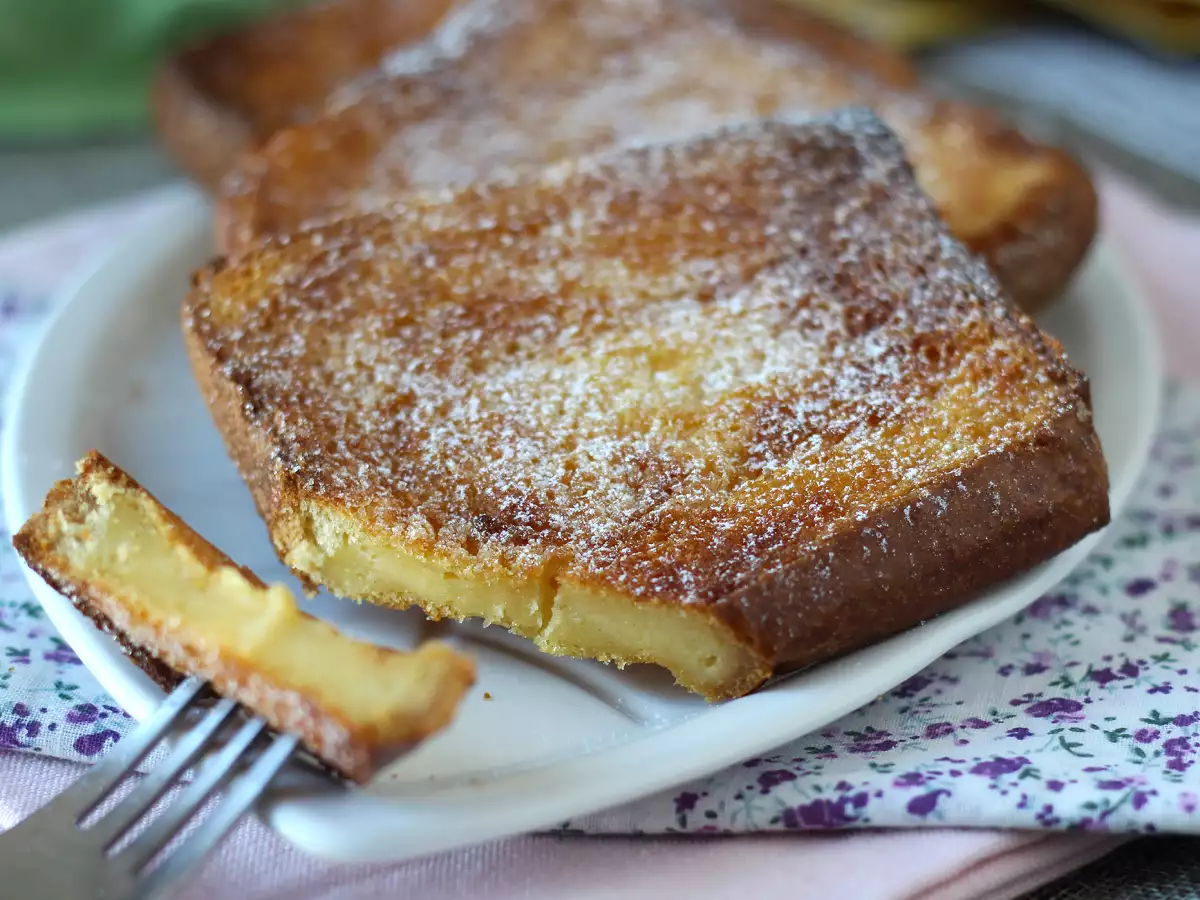
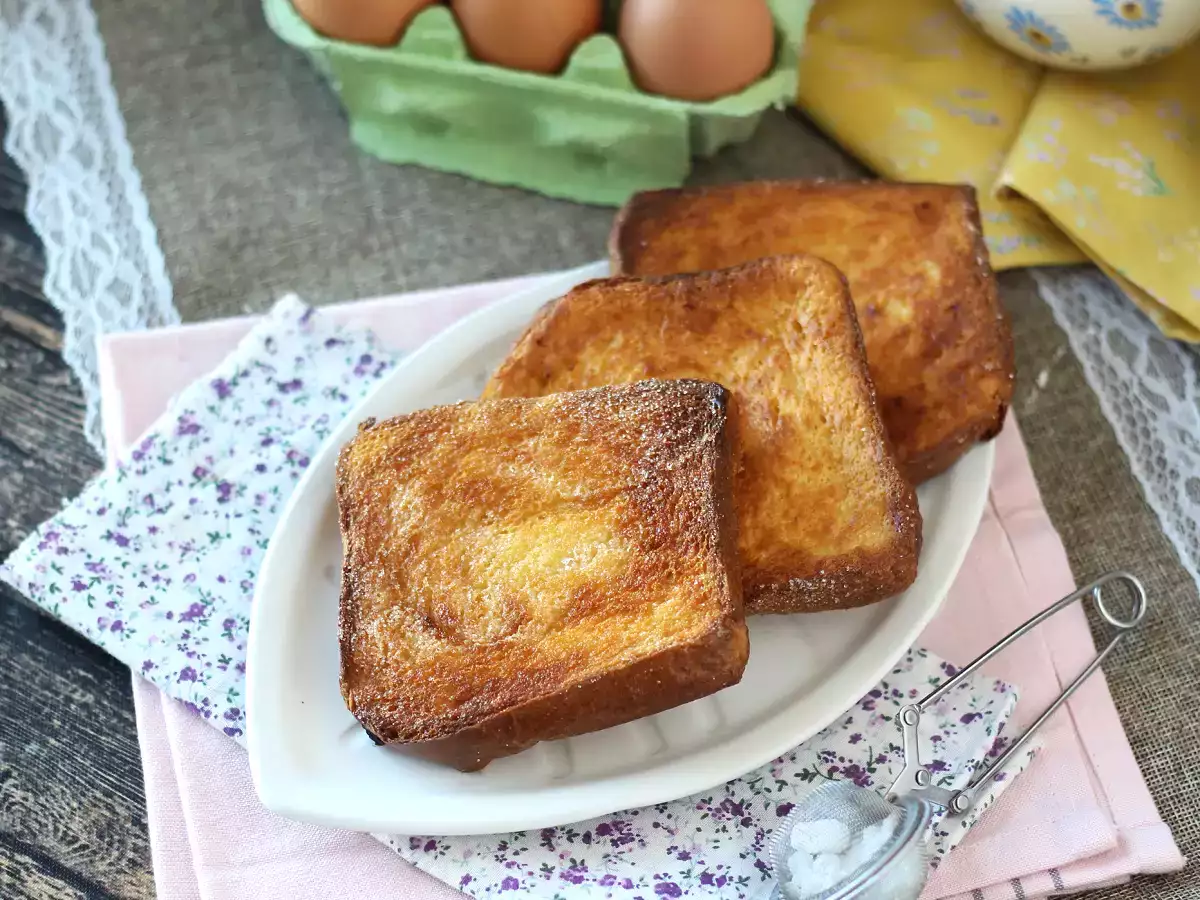
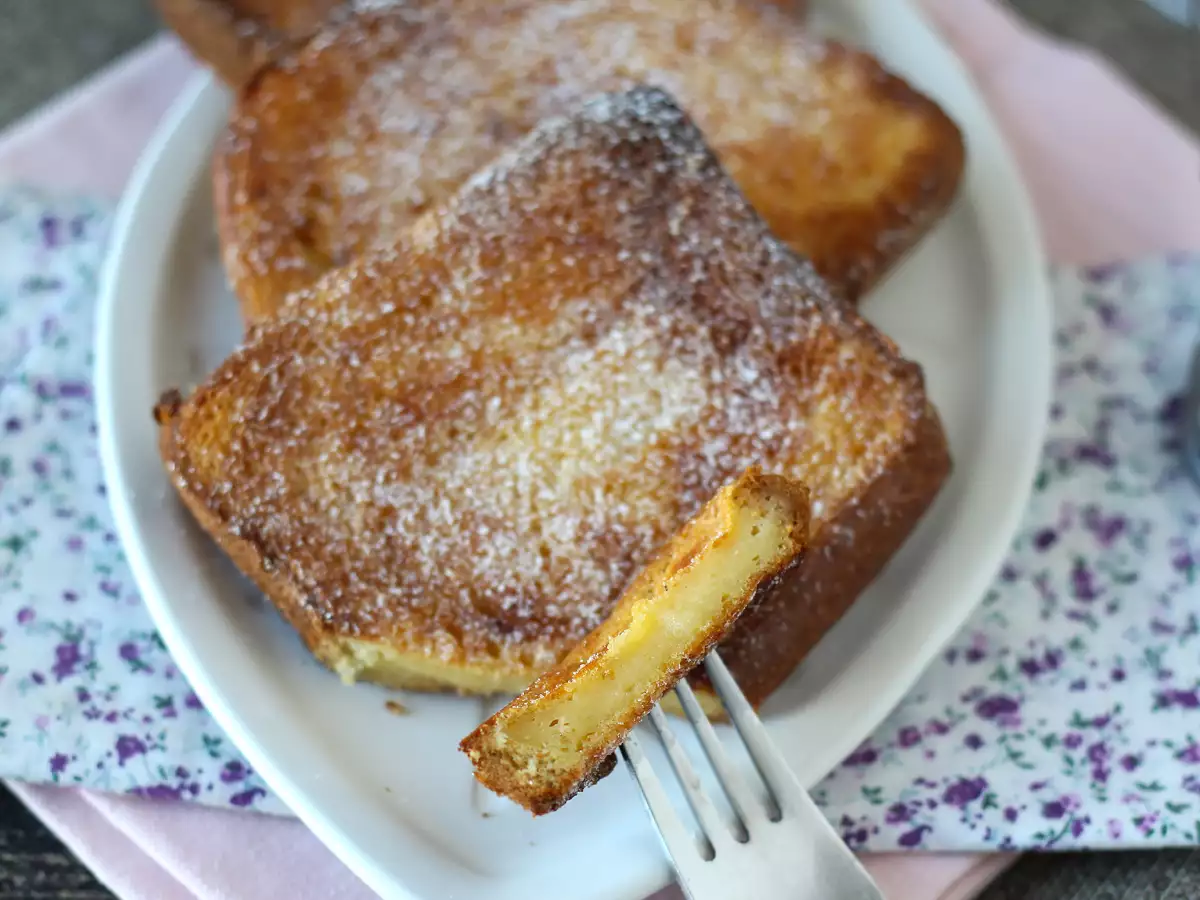
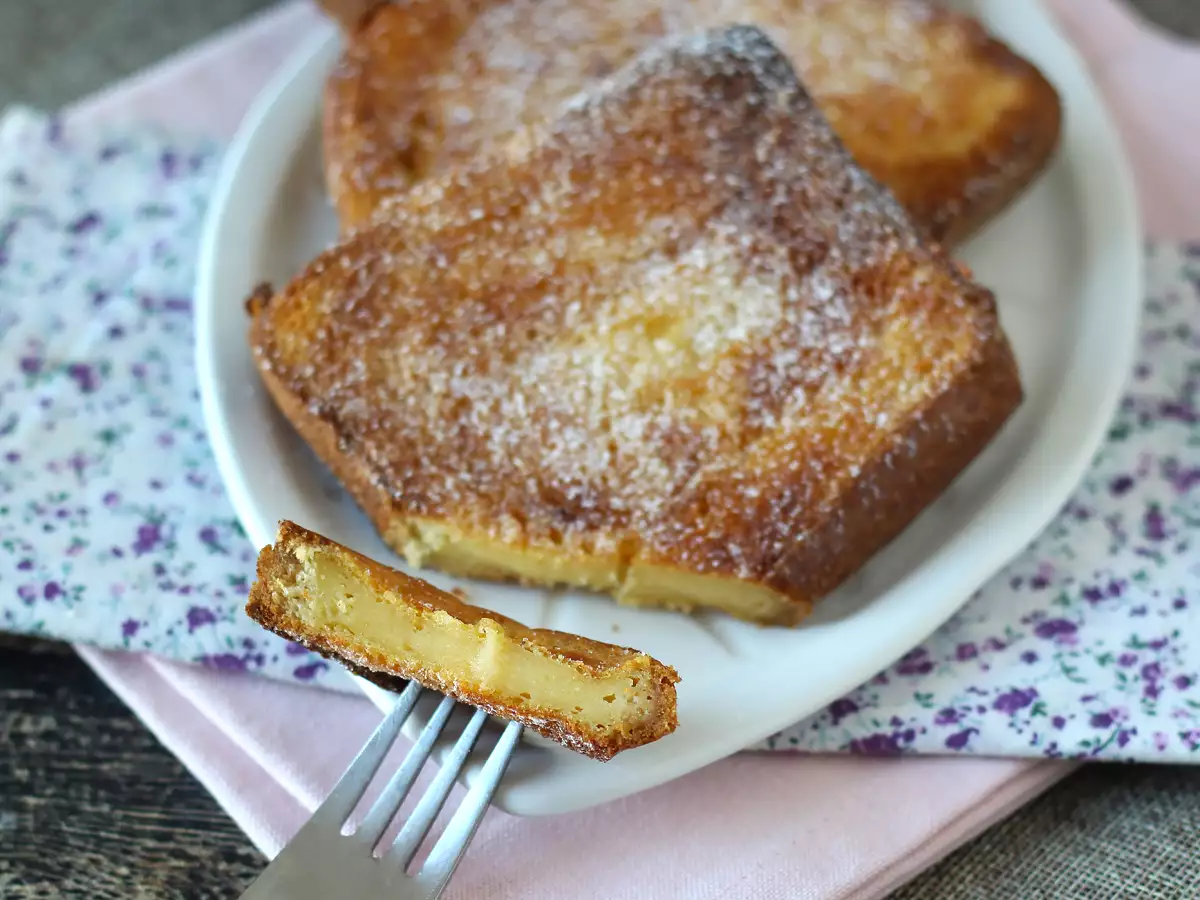
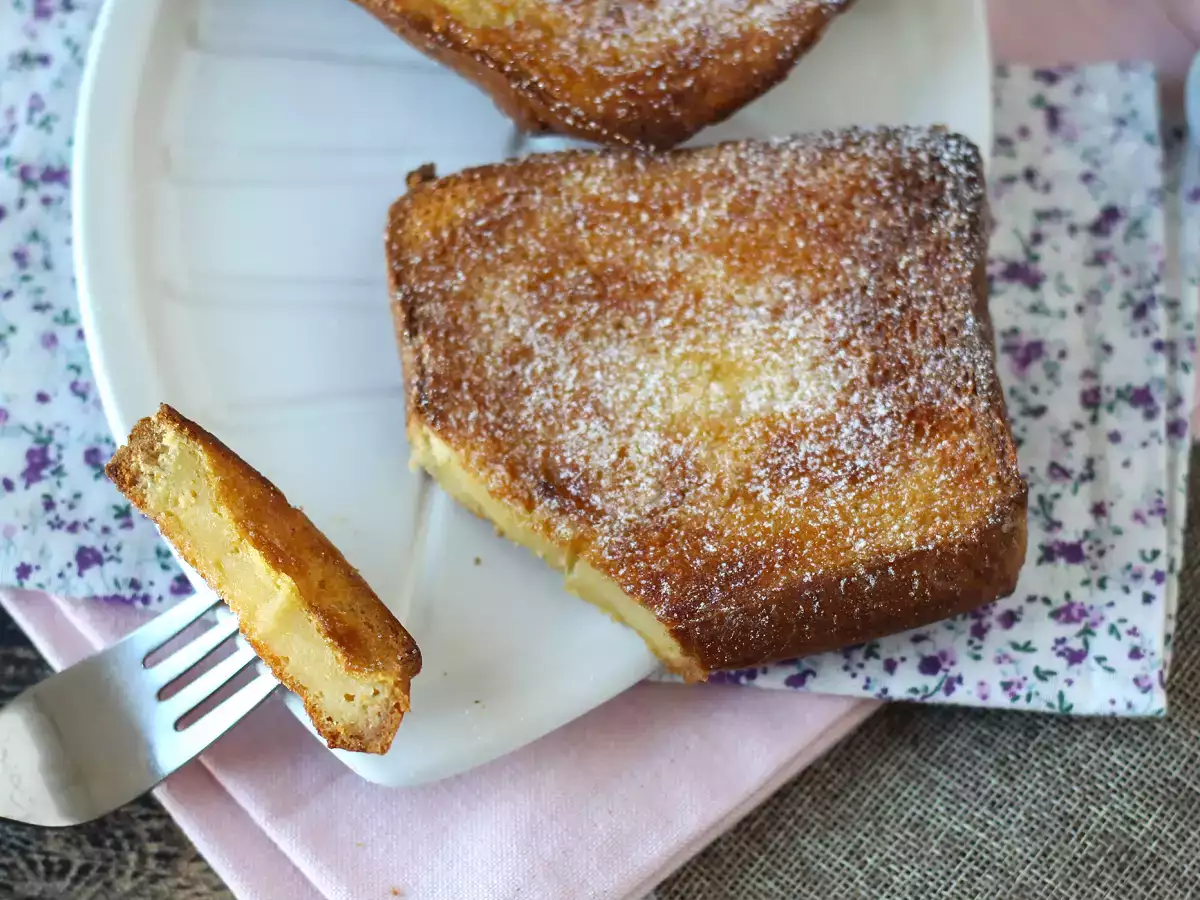
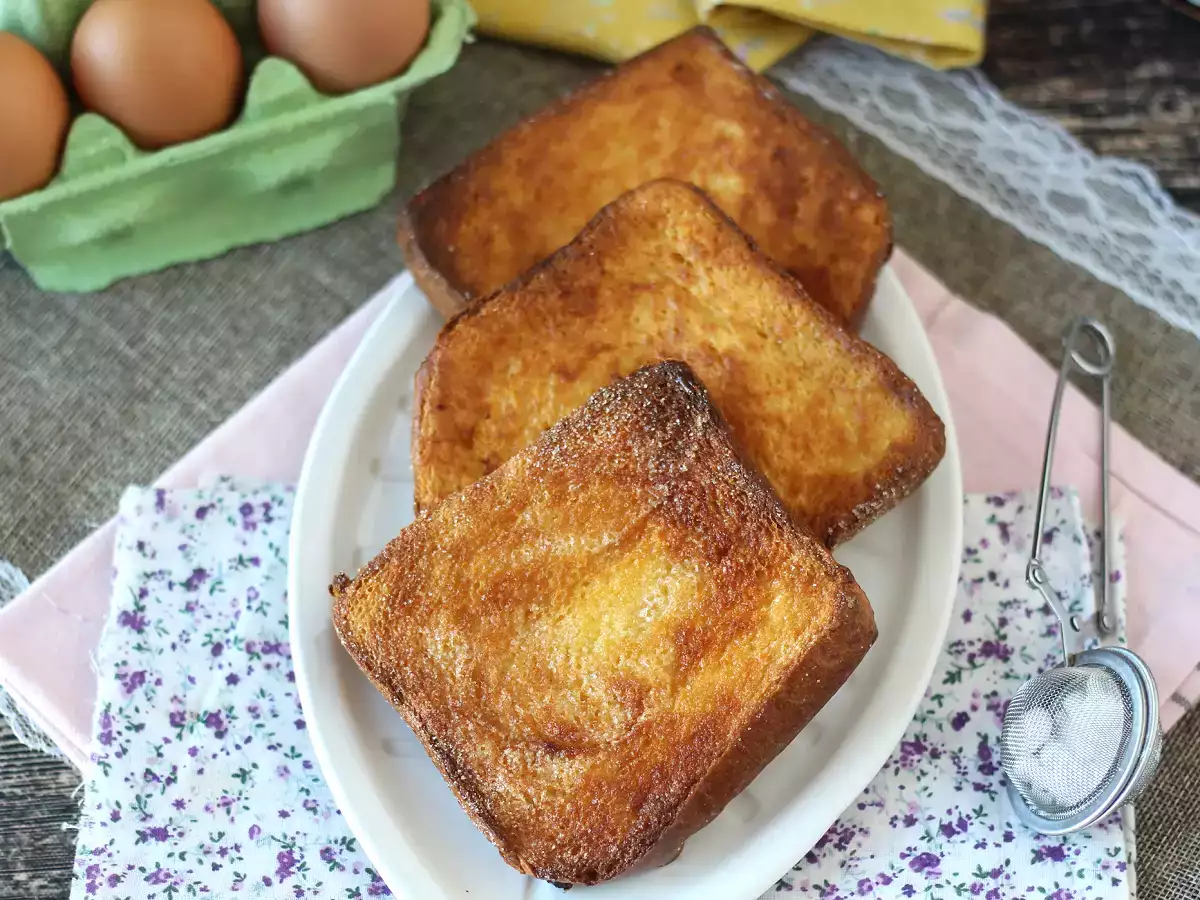
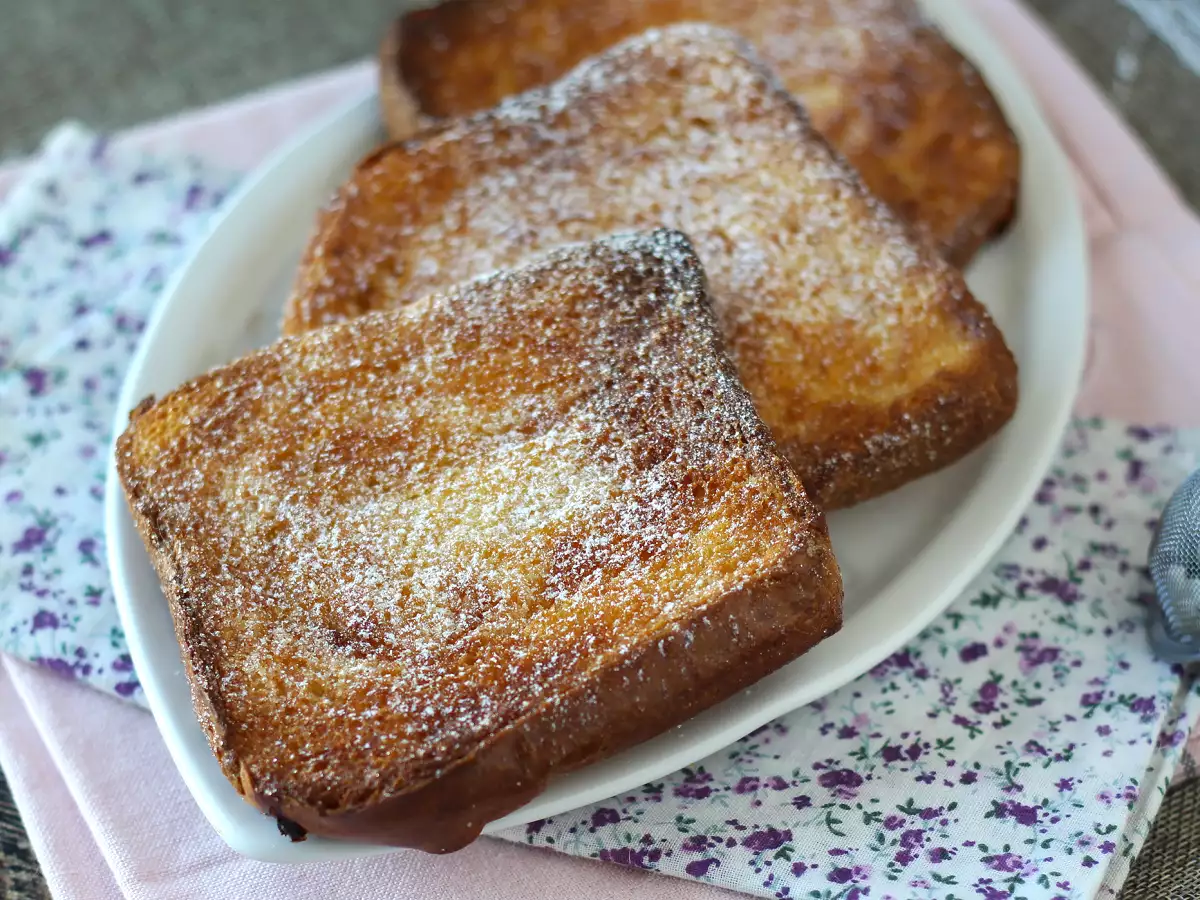
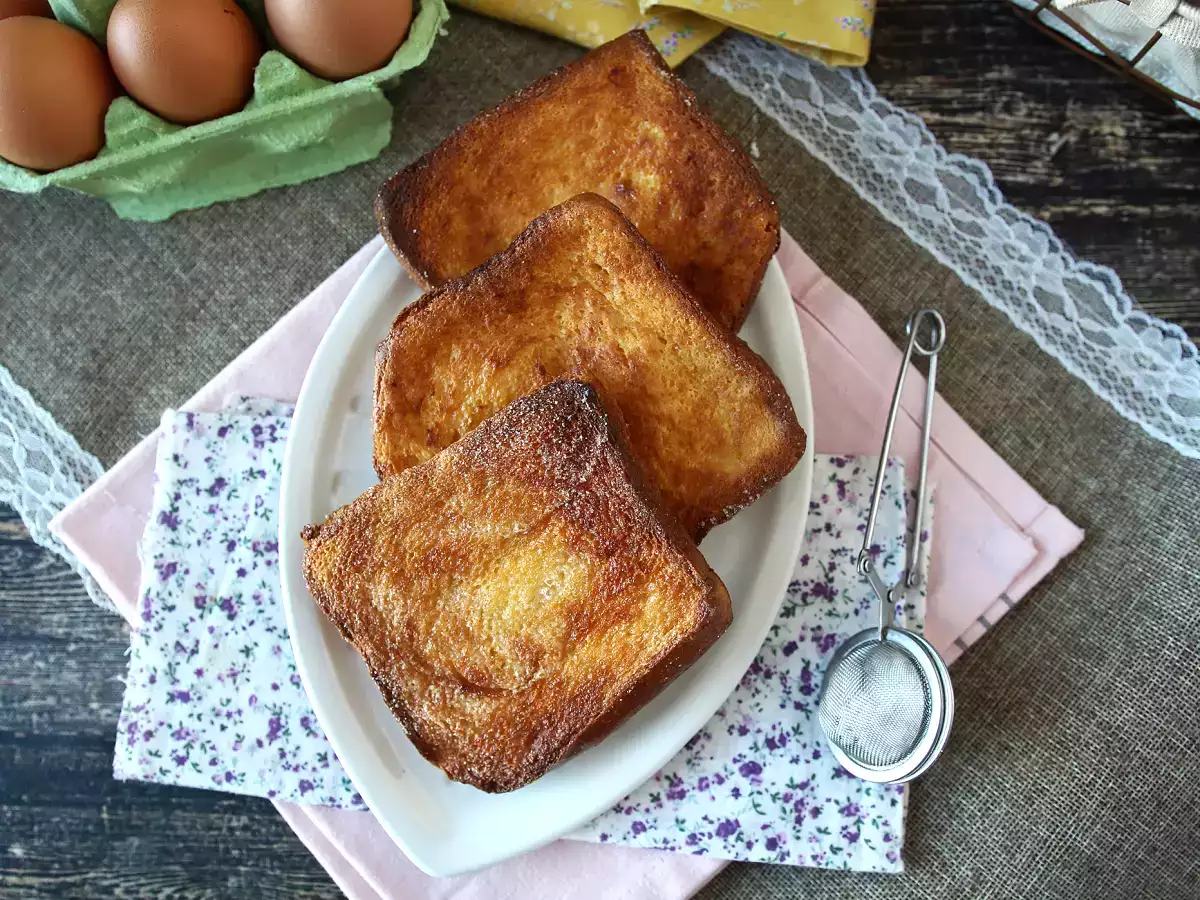
Rate this recipe